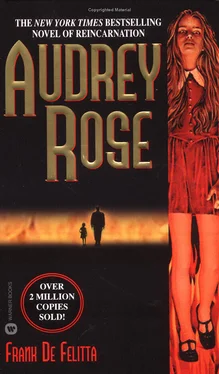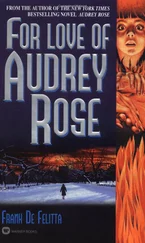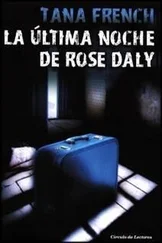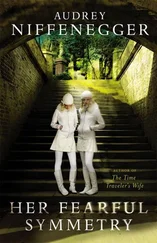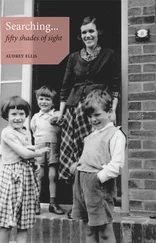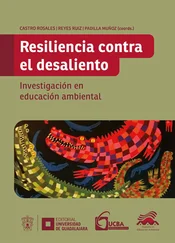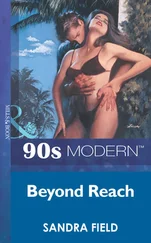“Would you care for something else?” Marie had sidled up to their table, unobserved, causing Janice to jump slightly.
“I’ll have more tea, thank you,” Hoover said.
“Do it again.” Bill said, handing her the empty glass. “Make it a double.”
Janice remained silent.
After Marie cleared the table and left, Hoover shut his eyes, composed his thoughts, and continued.
“About a year and a half after the accident I was at a dinner party and—now, please bear with me—one of the guests was a woman who claimed she could read minds. It’s called psychometrize. She’d take your ring or some other personal possession and, through it, tell you things about yourself, as psychics do, about your past, present, and future—like one of those magicians you see on the stage. I thought it was stupid, silly; people can’t do these things. Anyway, the friend who brought me to the party persuaded me to give the woman my ring, and she began telling me things about myself—very accurate things—about my past that only I knew. And then she started describing my daughter, as if she were a child of about two, and I got very upset. I started to leave when she stopped me and asked why I was so reluctant to talk about her. I told her that Audrey Rose had died in an accident and that the memory was still very painful. She laughed and shook her head.” Hoover’s voice rose in pitch slightly as he attempted to duplicate the woman’s speech. “ ‘Your daughter is alive,’ she said. ‘She’s come back.’ And she went on to describe my daughter as being a lovely blond child, living in a beautiful home in New York City. She gave Audrey Rose your daughter’s name, Ivy, combined them so dramatically that they were the same person, they were one and the same, and I thought, Oh, this is impossible! It was very shocking, upsetting, and so I left.… It was a very disturbing feeling when she told me all this.… And I told her she was crazy, she was wrong, and I took my ring back, and I left.…”
The words were spilling forth at a rapid rate. Bill felt himself wince under the viselike grip of Janice’s hand as she increased pressure apace with Hoover’s incredible statement.
Hoover filled his cup from the pot of tea and continued his story in a quieter, more controlled voice.
“Almost a year went by. I couldn’t help thinking about the incident, of course—it was natural to want to believe in such things—but I considered myself an intelligent, rational person and tried to push the whole thing away from me. But I couldn’t really. The things she said, the way she described Audrey Rose, the accuracy, it was all too convincing, and so I clung to the hope that perhaps she might be just another fraud. But I did nothing about it.”
After another slight pause, Bill thought to heighten the dramatic effect, Hoover picked up the threads of his story.
“The year was 1966; the month was December. I happened to be in New York on a business trip when I saw an ad in the Times , announcing a lecture appearance of a famous psychic at Town Hall—he was a well-known expert on paranormal phenomena and a clairvoyant as well. For some overpowering reason, I felt I had to attend. I remember giving up a ticket to Hello, Dolly!, which was the hottest show on Broadway at the time.
“The weather that night was miserable; it was almost impossible to find a cab, but I finally did and arrived at the hall as the lecture was in progress. I walked down the aisle as quietly as possible and had got to my seat when I realized that the speaker had paused in his lecture and was looking at me—studying me, actually, with a look of amazement. It took him a couple of seconds to recover his poise and continue with the lecture, which mainly centered on ESP and thought-transference experiments.”
While Hoover took a sip of tea, Bill sneaked a glance at Janice. Perspiration glazed her perfect skin; her eyes were riveted exclusively on Elliot Hoover, scrutinizing him with all the awe and uncertainty of a scientist on the brink of a fearful discovery. Bill squeezed her hand reassuringly, but the tenseness remained.
“After the lecture,” Hoover continued, “as I was about to leave the hall, he pointed his finger at me and indicated that he wanted me to wait. I joined him in his dressing room, where he immediately apologized for staring at me and told me about an aura, surrounding me, that had first caught his attention—”
“A what?”
“An aura. A kind of halo of light that emanates from certain persons and can be apprehended only by a specially attuned consciousness.”
“Oh.”
“Like the woman at the party the year before, he told me things about myself, very accurate things about my past, about my daughter, describing her as if she were alive and referring to your daughter as my daughter, all very detailed—descriptions of the kind of clothes she wore, and the friends she had—but it was my daughter, in your daughter, born again. He told me of the home she lived in, describing the living room with a large white fireplace and a lovely paneled ceiling with paintings set into it … and the room upstairs, where Ivy slept … the yellow and white gingham curtains, the bright terry-cloth bedspread … the dresser drawer that always sticks, second one from the top.…”
Janice flinched. She remembered well the checkered gingham curtains which she had made from a magazine pattern just before Ivy’s birth. And the terry-cloth bedspread that Aunt Wilma had sent them, discarded years ago. And that awful drawer, second from the top, that still defied the strongest, most patient attempts to pry open.
Janice spoke for the first time. “How old was your daughter when she … died?”
“Audrey Rose was just five, Mrs. Templeton. She and her mother were driving to Harrisburg on the turnpike. They were in a storm. The road was slick. The car skidded and smashed into another car and went down a steep embankment.” Hoover’s eyes reflected the painful memory of the tragedy. “They died before help could get to them.”
Janice bit her lip in hesitation, before asking the next question: “When … did it happen?”
Hoover didn’t answer at once. For a long moment, his eyes probed across the table, first into Janice’s face, then Bill’s, measuring his audience, pacing himself with care, before softly replying, “August 4, 1964, a little after eight twenty in the morning, a few minutes before you gave birth to Ivy at New York Hospital.”
Janice remained sitting, immobile, locked in the grip of Hoover’s penetrating gaze. Bill coughed and rose to his feet.
“Well, Hoover, this is certainly a lot of information you’ve given us. Give us a couple of days to think about it.”
Elliot Hoover stood up, flustered, as he saw Bill clutch Janice’s arm and begin to assist her to her feet.
“Y-you do understand what I’ve told you, Mr. Templeton?” Hoover stammered, placing himself in their path in a futile attempt to delay their departure.
“Sure,” Bill replied genially. “Your daughter died and was reincarnated in our daughter. In effect, you are saying that our daughter, Ivy, is really your daughter, Audrey Rose.”
“Well … yes,” Hoover said, attempting to gauge Bill’s sincerity. “I think we should talk more and come to some kind of … understanding. I don’t want to hurt anybody. I know that legally there’s nothing I can do about this. And even if there were, I wouldn’t do that to you. I know what it is to lose someone you love.”
“Yeah, sure.” Bill steered Janice purposefully past Hoover toward the restaurant archway. “We’ll think about it, see if we can’t come up with some answers.”
“May I call you tomorrow?” Hoover directed his words at their backs as they moved rapidly away from him.
Читать дальше
